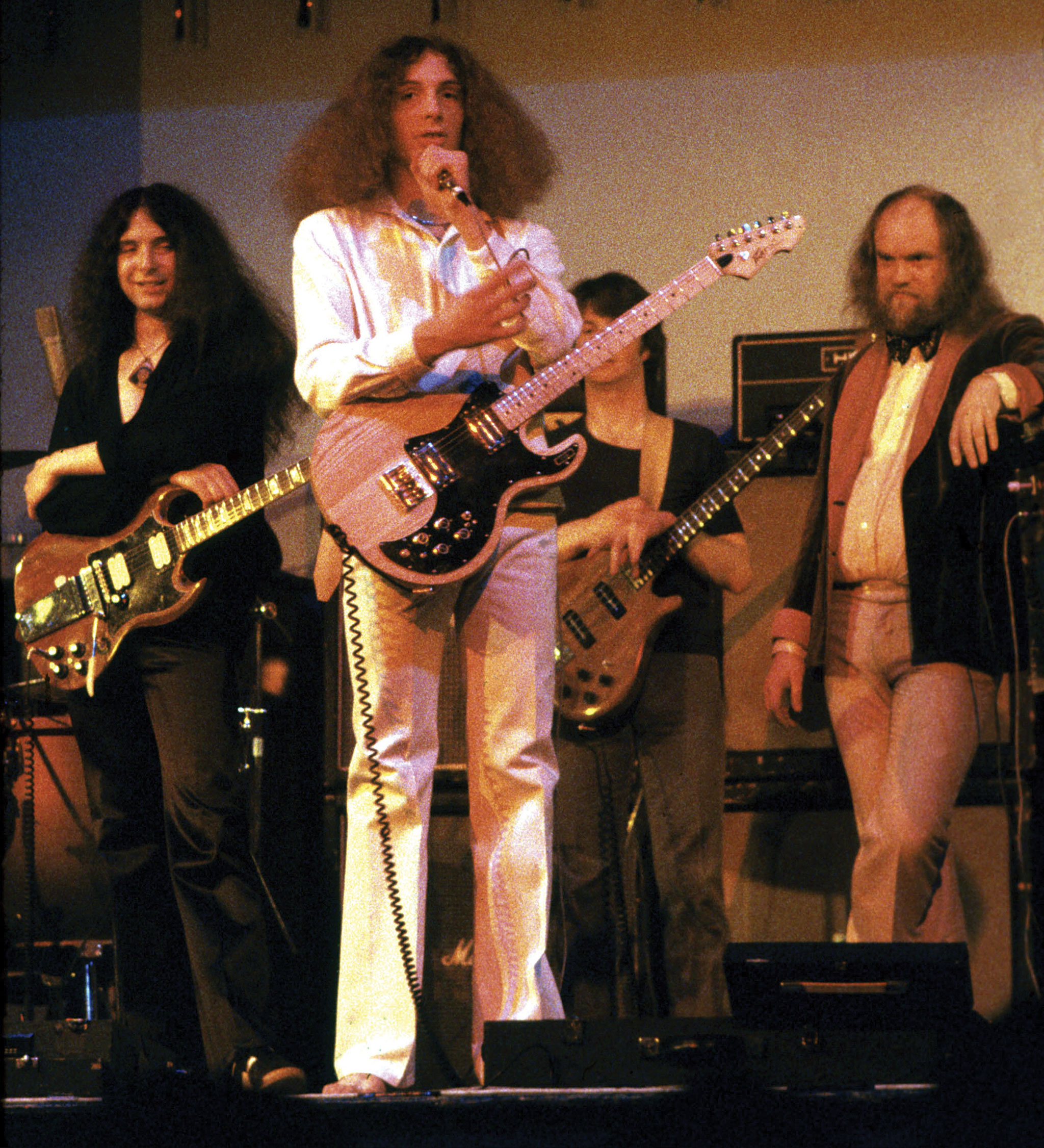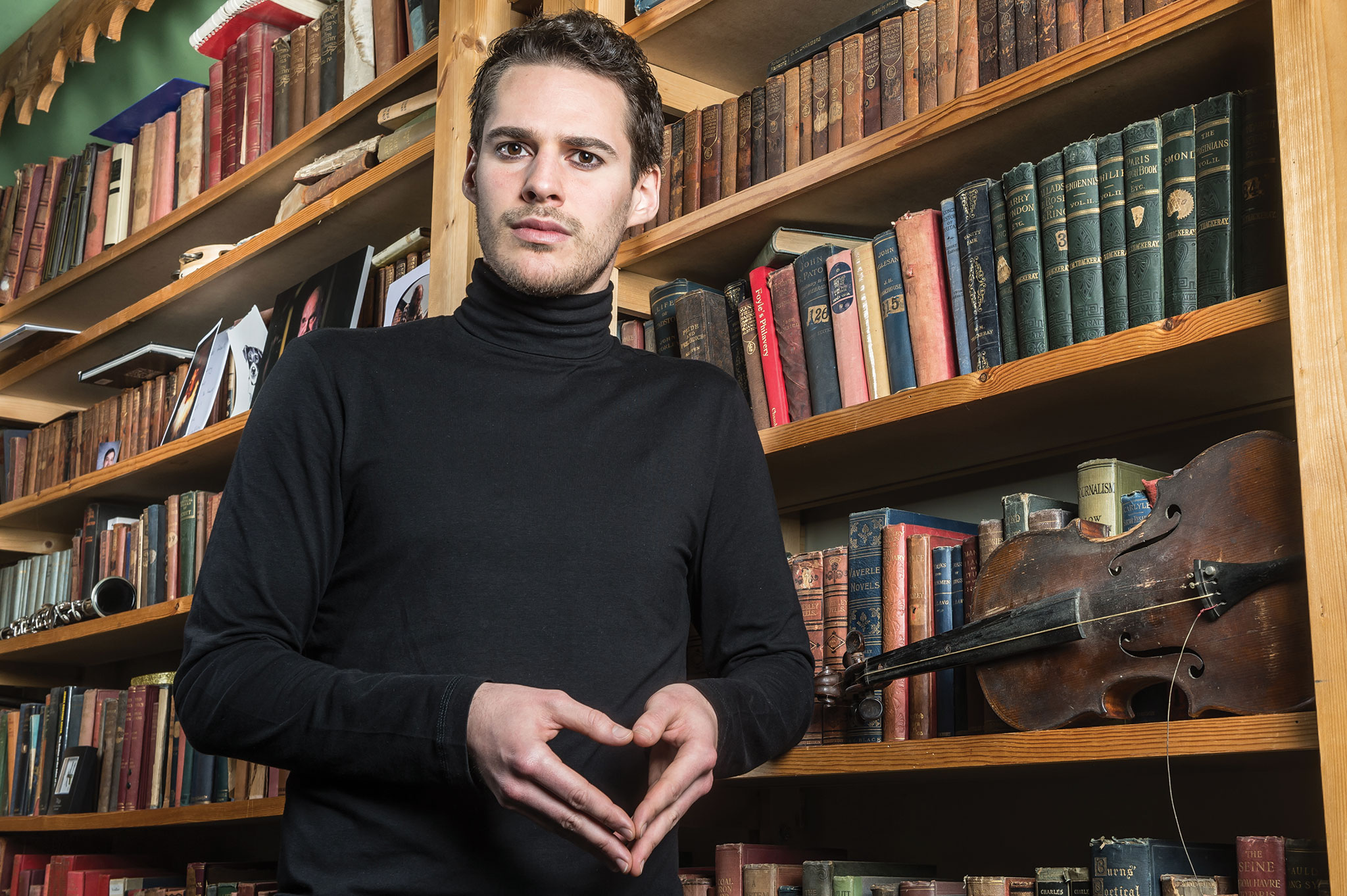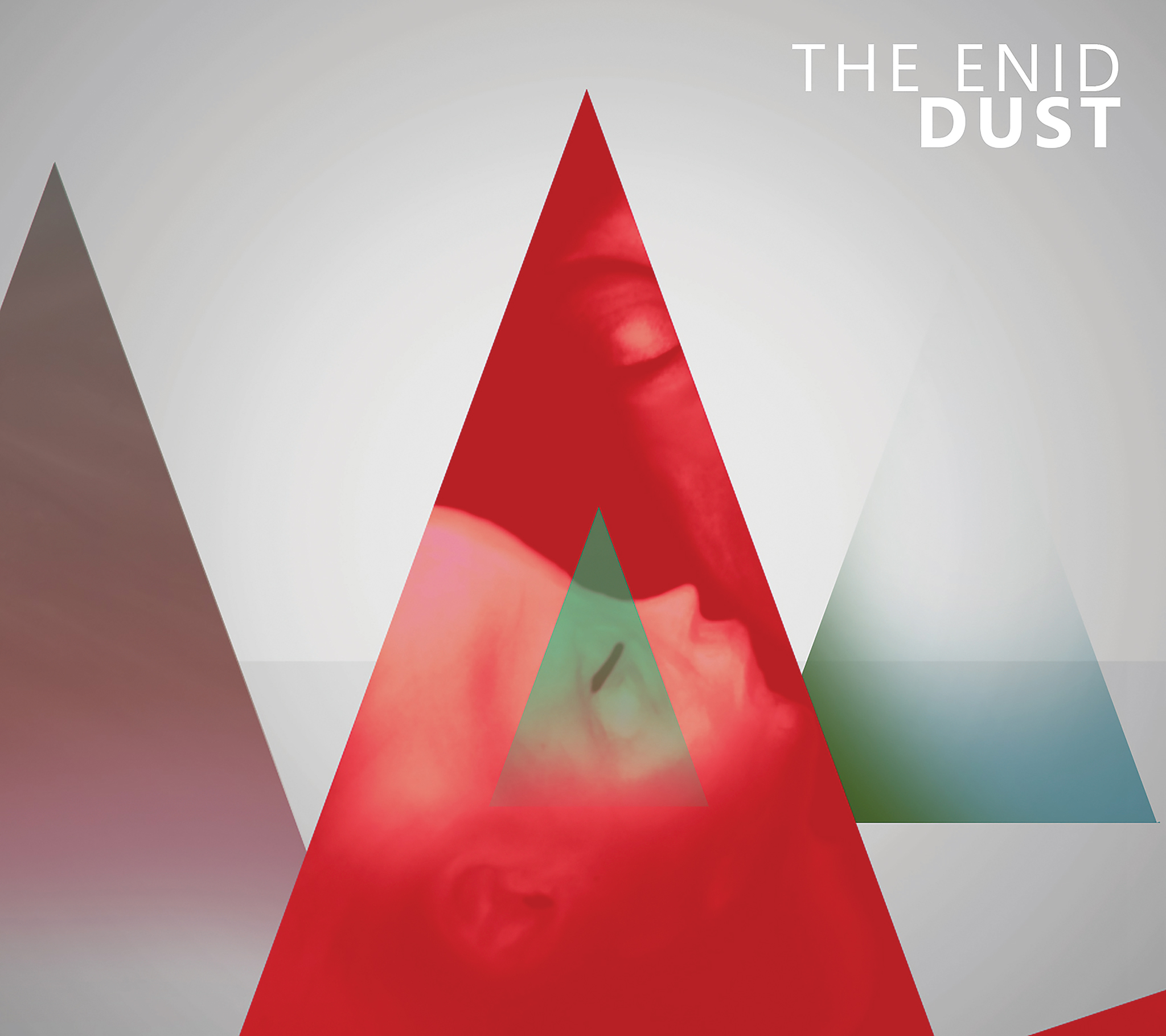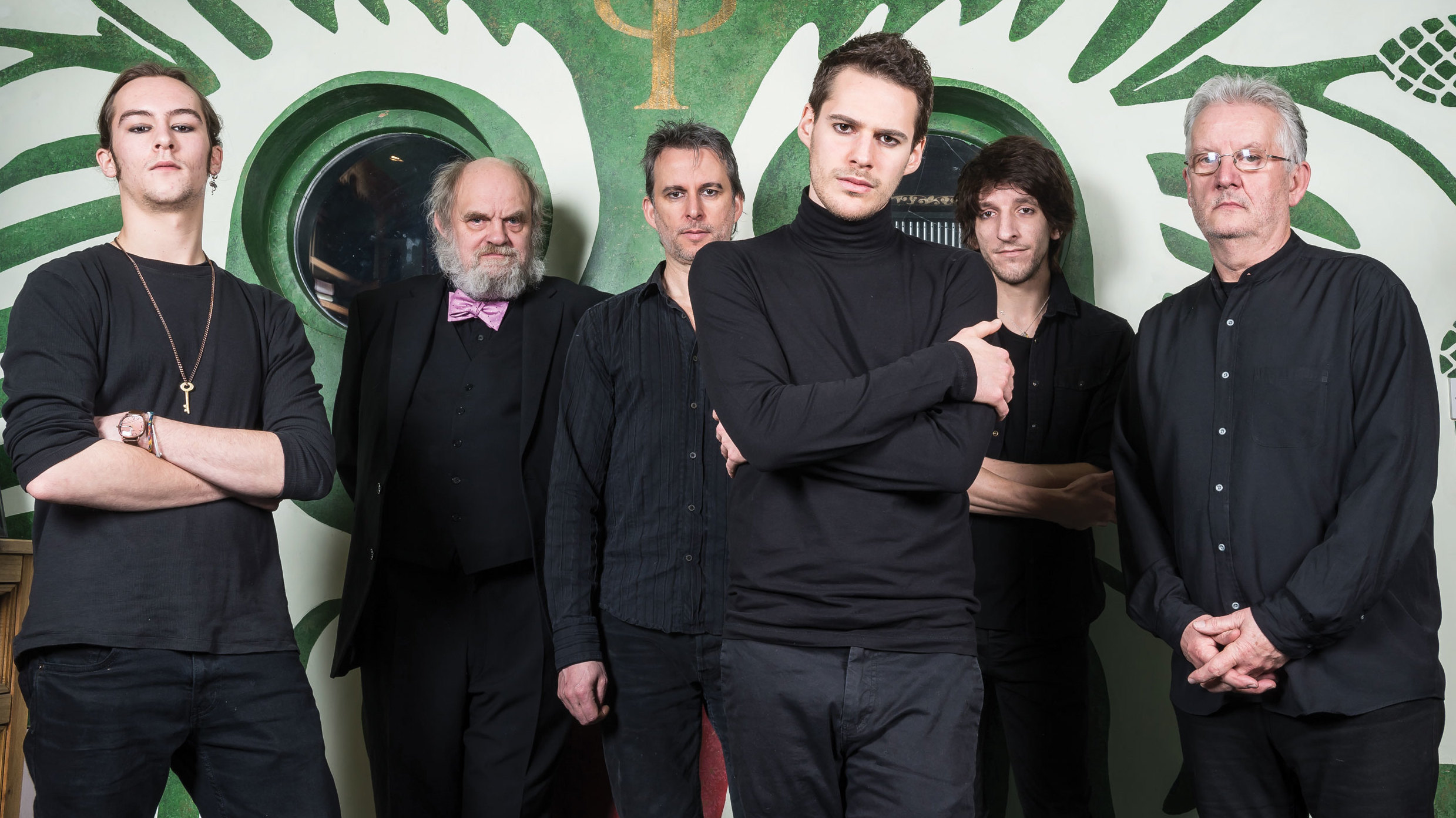Robert John Godfrey has no doubt about what makes The Enid different to other bands.
“We use all of the keys. The 12 major ones and the 12 minor ones. And we’re also prepared to introduce artificial keys if it works for us. In that respect, we are unique.”
The Enid have never respected conventional musical rules, always adapting to the prevailing conditions. Godfrey acknowledges that this goes right back to first album In The Region Of The Summer Stars in 1976.
“We had a wunderkind on vocals in Peter Roberts, but he committed suicide for reasons none of us understood at the time,” says Godfrey. “We didn’t want to go ahead and record the album after Peter died. But our label EMI suggested we turn In The Region… into an instrumental record, and I wasn’t against that.”
Now the band have reached their 16th studio release, and Dust represents the completion of a trilogy that started in 2010 with Journey’s End, continuing two years later with Invicta. The new album is not only a consummate representation of where the current line-up of the band – which only came together last year – have taken the style and sound, but it also nods strongly towards the past.

“We’ve not tried at all to recreate what has gone before,” attests frontman Joe Payne. “But I feel we are sufficiently confident in what we’re doing to be able to reflect on The Enid’s past glories. And we’ve done it deliberately. In some ways, Dust is the end of an era, and that’s why it was good to acknowledge the history of this band.
“The concept here is based on a seven-pointed star, representing a broken symmetry. Six of these are diametrically opposing forces, which cancel each other out. When that happens, all you are left with is the seventh point – and that is love.”
The trilogy has been cast from a vision Robert John Godfrey had several years ago, one he has so eloquently explained at some length previously. It saw him coming face‑to-face with himself as a child – “Someone who was never loved,” he admits – at the junction of two very different worlds. The first is an arcadian utopia, while the other is more turbulent and stormy. During this dream, Godfrey as he is now transforms into a tree, with roots firmly in the ground, and reaches out to his childlike image to save him from falling over a cliff.
We will never compromise. Staying true to what we believe in is paramount. That’s why we view The Enid’s music as an artistic statement.
“I suppose there are many ways of interpreting this, including it being a metaphor for the way The Enid has developed,” says the band’s acknowledged leader since its inception in 1974. “But I have always known it is really about me coming to terms with who I am, and the struggles I have had to achieve things.”
For Payne, creating Dust has been a somewhat cathartic experience. “If people know what I am actually talking about in the lyrics then they might be quite shocked,” he says. “As it is, I’ll keep those things to myself. Thankfully, the songs are a little ambivalent, which means everyone will have their own view on what I’m singing about. But getting all of this out into the open has allowed me to come to terms with a lot of my demons. I wouldn’t say that I’ve got rid of them all, but what I have done now is learn to live with them.”
It took the band three years to bring Dust to life, and the recording process was, admits the vocalist, a very difficult exercise.
“We’ve all been going through a lot of tough times, myself included. And we’ve poured all of this into the album. There’s so much anger and bitterness in there, which is why it took such a long time to get together. But it was all worthwhile. There was considerable tension while we made the album, but this was all channelled into the music. Compared to Invicta, which was done quite quickly, it was a very hard record to make. However, we grew a lot during the process.”
Dust is a massive and thought-provoking leap forward from what The Enid created on Invicta, and Godfrey believes this has a lot to do with the way Payne has matured.
“Joe was very new when we did Invicta. He’d only been with us a year, and I think there was a lot of naivety which came through back then. That’s why it was important we did The Bridge album with him in 2015. I wanted to give him the opportunity to grow as a vocalist and also as a core member of The Enid. And that experience certainly helped him, as I feel you can now appreciate when you listen to what he does throughout Dust. Studio technology has also come a long way in the last few years, and that’s something we’ve also embraced.”
Neither Godfrey nor Payne see The Enid as a band in the accepted sense of the term. This is more of a self-sufficient collective, one with an enduring dedication to art, as opposed to commerce.
“You could say we’ve got things to a point where we almost make a living!” laughs Payne. “But we will never compromise. Staying true to what we believe in is paramount. That’s why we view The Enid’s music as an artistic statement. There are a number of bands who set out to give people what they expect and want, and I would never knock them. But they’re entertainers and not artists. There’s a big difference between these two approaches.

“All of my biggest influences – David Bowie, Kate Bush, Peter Gabriel – put creativity before anything else. What mattered, and matters, to them was being true to themselves – it’s the same with us. As long as all of us in The Enid have complete faith in what we do then we’re satisfied.”
With typical attention to detail, The Enid haven’t yet finished with this trilogy in the studio because they now have plans to go back and re-record Journey’s End. “Joe wasn’t with us when we did the original,” reveals Godfrey, “so we will now do a new version with him.”
“It’s also a chance for us to bring Journey’s End more in line with what we have done on Dust,” adds Payne. The Enid’s success in the recent Prog Readers’ Poll shows how much respect they have earned. Picking up the awards for Best Band, Best Vocalist and Best Keyboard Player delights Payne, who sees this success as a vindication of what the band are doing.
“We’ve had to face a lot of criticism over the past few years. People have told us that what we’re trying to do was never gonna work, and there have even been those who’ve laughed at us. So, to have such positive results in the Readers’ Poll means so much to this band because it’s proof that what we’re doing is finally making its mark, and that for those who matter – the fans – The Enid are a valid and ongoing musical force to be reckoned with. We’ll carry on staying true to our convictions.”


